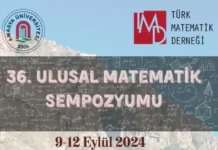International Conference of Political Economy (ICOPEC)
Institutions, National Identity, Power, and Governance in the 21st Century
International Conference of Political Economy (ICOPEC) is organized by Batman University Faculty of Economics and Administrative Sciences, Marmara University Faculty of Economics and Faculty of Philology, University of Belgrade (Serbia) with the cooperation of University of Westminster (UK), Institute for Economic & Social Research of Piedmont (IRES, Italy), Ostrava Technical University (Czech Republic), GITAM School of International Business (India), Aligarh Muslim University (India) and Pontifica Catholic University of Lima (Peru).
The main theme of the 8th ICOPEC conference has been identified as “Institutions, National Identity, Power, and Governance in the 21st Century”. However, ICOPEC 2017 will also be open to different aspects of political economy’s subtopics and submissions in culture studies related to conference theme mentioned below.
The 8th ICOPEC will be held in Belgrade on June 28-30, 2017. We invite proposals for oral and virtual paper presentations around the main themes of the conference. Best paper prize will be given for each of the disciplines of economics, politics, political economy, public administration, public finance, international relations, sociology, philosophy, cultural studies, language studies, business communication, labor economics, business management, and econometrics.
The languages of the conference will be ENGLISH, TURKISH, and SERBIAN. Abstracts and session proposals should be around 300 words, in Word format and 12 fonts, and include paper title, the name(s) and full address (mail address, affiliated institution, e-mail, phone and fax) of the author(s), the purpose and the method of the work, expected results and implications. Abstracts should be electronically submitted by May 05, 2017, via e-mail to bilgi@icopec.org or electronically submitted at . Detailed information regarding the conference can be obtained at www.icopec.org and author guideline can be obtained at www.icopec.org/author-guidelines.html.
Abstract Submission Deadline: 05 May 2017
Notification of Acceptance: 12 May 2017
Early Bird Registration Deadline: 12-31 May 2017
All accepted abstracts will be published by IJOPEC as an e-book with ISBN before the conference. In addition, selected papers will be published in 3 edited international books and peer-reviewed journals, such as, International Journal of Productivity Management and Assessment Technologies, Journal of Life Economics, World Journal of Applied Economics, Marmara Üniversitesi İktisadi ve İdari Bilimler Fakültesi Dergisi, Çalışma ve Toplum, and KPY Yıllık Açık Alan after the conference.
About the Main Theme and Scope of the Conference
Economic development and the success of economic policy designed to accomplish developmental aims can be seen as a product of political interactions between citizens and rulers, and social interactions among the members of the society in broad terms. As structures or mechanisms of social order, institutions govern the behaviour of a set of individuals within a given community. In the words of Douglass North (1990: 4), “Institutions are the rules of the game in a society, […] the humanly devised constraints that shape human interaction. […] They structure incentives in human exchange, whether political, social or economic.” North (2003) suggests that “institutions exist to reduce uncertainty in the world. In a world without institutions, we would not know how to deal with each other. Institutions are the incentive systems that structure human interaction. They can make predictable our dealings with each other every day in all kinds of forms and shapes. They thereby not only reduce uncertainty in the world but allow us to get on with everyday business and solve problems effectively.” This conference takes analysis of formal and informal institutions as a departure point, in the context of which to evaluate the varying and evolutionary performances of developmental states and their frequently top-down policies aimed at adjusting or altering “the rules of the game” for their developmental problem-solving—if in accord with their own respective national identities.
National identity, on the other hand, is one of the most basic social identities and it is the sine qua non of citizenship. The nation-state has often been more of reflection of political aspiration than sociological reality. As Gianfranco Poggi has pointed out, the modern state is a “made historical reality,” a “purposively constructed, functionally specific machine” (1978: 95, 101) and as such it needs to mobilise commitment through a national ideology. In other words, the state as the political realm is continuously faced with the task of legitimising itself to its citizens or the nation—the cultural sphere (Bechhofer & McCrone, 2009).
Traditionally, structures of decision making implementation have been rigid, centralised, top-down and predetermined in nature be they in families, firms or governments. Over time, however, the traditional notions of sovereign authority have weakened to the point where in many circumstances universal principles, such as those of human rights and environmental sustainability, are becoming both more legitimate and more effective than rules imposed by appealing to national prerogatives. Similarly, the trend at the micro level of firms and families had been away from the unconstrained authority of the owner and father over employees and family members.
Individual and social aspirations changed markedly during the 20th century, and not only for people and institutions in the wealthier parts of the world. Globally, there has been until recently a steady if uneven, transition away from passive acceptance of divine rights to active pursuit of human rights, and away from unquestioning obedience to patriarchal authority to a more egalitarian recognition of individual liberty. Such shifts in values have played an important role in altering the ends and means of governance. In several parts of the world, including the Western countries, however, a resurgence of right-wing nationalist parties criticising human right concepts and striving for a restoration of patriarchal gender roles has occurred especially over the last few years.
Despite today’s general tendency to assign formal power to citizens and shareholders, in practice the choice of goals and of the means for reaching them remain largely delegated, centralised and hierarchical. Nevertheless, it is desirable and even plausible to consider the longer-term prospects for a major transformation in the institutions, rules and cultures that shape practical governance in all societies. For critiques of globalisation, the concept of territoriality is crucial. They perceive the selective rehabilitation of borders essential for alternative development concepts.
In line with general trends of prevailing global social discourses the importance of culture elements is growing both in spheres of general social development and economic development. The importance of the language, translation and general understanding of different cultures is on the rise in a world that is increasingly multipolar and multicultural. Thus ICOPEC 2017 is providing a venue for presenting new research in areas of culture studies and language studies where they provide a good basis for multidisciplinary approach to better understanding of institutions, national identity, power and governance in the 21st century. Various cultural elements are of special interest when researching economic development and if one is to accurately envision the future social and economic trends good insight is also need into development of business communications, translation possibilities of humans and machines and other implications arising from everyday interactions of various entities in a multicultural business and social environment.
Through mapping the processes and consequences of globalization, among other things, this conference seeks to look into the multiple strands of often conflictual and contradictory forces and trends of the world in the 21st century. The presentations are expected to cover, but not limited to, the following issues.
INSTITUTIONS AND ECONOMIC DEVELOPMENT IN THE CONTEXT OF SOCIAL AND POLITICAL INTERACTIONS
• Social Norms, Culture, and Development
• Cross Cultural Researches
• Social Innovation
• Innovation in Social Enterprises
• Social Conflicts, Social Movements, and Development
• Institutional Change and Globalization
• The Effects of Non-Governmental Organizations to Institutional Change
• Politics of Inequality, Income Distribution, and Development
• Power Relations and Political Decision-Making
• Late Industrialization and Catching-Up
• Developmental State after the Post-Washington Consensus
• Opportunities and Challenges for Development after World Economic Crisis
• Competition, Cooperation, and Development
• Institutions and Economic Performance
• Institutional Change and Development
• Institutional Change and Social Movements
• Institutions, Reciprocity, and Development
• Institutions, Transaction Costs and Development
• Institutions, Rent-Seeking, Corruption, and Development
• Global Value Chains and Development
• Politics of Social Welfare and Development
• Globalization and Regulatory Politics
• Democracy, Transparency, and Development
• Gender Issues and Democracy
• Equality, Justice, and Democracy
• Government, Good Governance, and Development
• Trade and Industrial Policy for Development
• Science, Technology, and Innovation Policies for Development
• R&D, Technology Capability Building, and Development
• Vocational Education, Training, and Development
• Diffusion of Technology and Development
• Innovation Clusters for Regional Development
• Green Growth Policies and Development
• Climate Change and Development
• Renewable Energies and Development
• Green Buildings and Development
• Sustainable Social-Ecological Systems and Development
• Energy Resources and Renewable Energy
• Policies for Inclusive Development
• Inclusive Business Models, and Social Entrepreneurship
• Social Expenditures and Development
• Subjective Well-Being and Development
• Behavioural Economics for Development
• New Organizational Models, Collaborative Spaces, Creative Hubs
• City Development and Gentrification
• Precarity
• The Role of Transportation in Economic Development
• Public-Private Partnership and Development
• Regional Competitiveness and Development
• Global Economic Development and the Rise of the BRICS
• Multi-Dimensional Measurements of Development and Welfare
NATIONAL IDENTITY, POLITICAL INTERACTIONS, AND GOVERNANCE
• Social Life and the Society
• Transformation of the Society
• Reason, Religion, and Philosophy
• Justice, Equality and Inequality
• New Social and Political Movements, and Inequality
• Game Theory in Terms of Political Interactions
• New Social Risks and Social Exclusion
• Civil Society Discourse and Urban Movements
• Violence against Movements
• The Crisis of Democracy
• From Minimal to Regulatory State
• Institutional Change and Governance
• Governance and New Public Management
• Gender: Private and Public Life
• Race, Gender, and Ethnicity
• Cross-Border Migration and National Identity
• Cross-Border Migration and Nation-State Interaction
• Refugee, Immigrant, and Minority Issues
• Conflict, War, and Gender
• Economic and Regional Demography
• Reforms of Social Security
• Technology, Science, University and Society Relations
• Cultural Policy
• Social Sustainability
THE IMPORTANCE OF CULTURE ELEMENTS IN SOCIAL AND ECONOMIC DEVELOPMENT
• Culture Elements in Institution Building Processes
• National Identity, Language and Culture in A Globalized World
• Power Structures and Power Building in Culture Sphere
• Soft Power and Culture Elements Related to Complex International Relations
• Importance of Culture and Language for Management in A Multicultural World
• Governing Multicultural Societies, Importance of Language, Translation and Culture Studies
• The Significance of Business Communication in A Multicultural Global Environment
• Business Language Tuition as A Part of Content – Integrated Language Learning Methodologies
• Culture and Language Studies in Function of Economic Development
• Communication and Translation Studies for Economic Developement
• Economic Role of Libraries as Idea Banks
• Economic and Cultural Development Aided by A New Paradigm of Translatology Studies
• Translating Cultures, Opportunities and Pitfalls in the Business Environment
• Digital Archives and New Business Environment in A Multipolar World
• Organizational Culture and Organisational Subcultures in A Global World
GLOBALIZATION, POWER RELATIONS, AND ECONOMIC POLICY
• Globalization Discourse: Divergence or Convergence?
• Political Economy of Globalization
• Legitimacy in Global Governance
• Power and Governance in International Politics
• The Crisis of Global Governance after Brexit and Election of Trump
• Globalization, Income Distribution, and Uneven Development
• Game Theory in Terms of Power Relations
• Global Public Goods
• Sustainability and Intergenerational Justice
• Marketization of Natural Resources
• Globalization, Environmental Problems, and Public Policy
• International Organizations (IMF, WB, WHO, UNHCR, UN etc.)
• The European Union as a Supra-National Institution and Custom Union
• Bargains of States and Transnational Corporations (TNCs)
• Utopias and Disutopias in Politics
• Justice Issues in International Politics
• Financial Development, Capital Flows, and Development
• Crises and Global Politics
• Globalization and Gender
• Globalization and Corporate Social Responsibility
• The Relationship between Aid and Growth
• Globalization and Innovation Policy
• Globalization and Innovation Management
• Competitive Advantage of Nations
• Crisis, Unemployment, and Austerity Policies
• Globalization and Government Regulation
• Military Conflicts, Human Right Abuses, and Immigration
• Citizenship Issues in Global Politics
• Economy of Immigration
• Costs and Benefits of Immigration
• Social and Financial Burden of Immigration
• Immigration Policies in the Context of Nation State
• Migration and Public Services
• Global Terrorism and Counter-Terrorism
• Market-Society Tension and Social Policy
• Neoliberal Tendencies in Cultural Policies
• Market, Competition, and Union Rights
• Trade Union Rights / Worker Rights in Globalization Process
• Marketization of Social Insurance and Social Security
• Marketization of Workers’ Health and Safety
• Intra- and Interregional and International Integration
• Changes in Accounting and Financial Auditing after Globalization
• Economic Sustainability
THE 4TH INDUSTRIAL REVOLUTION AND ITS IMPLICATIONS FOR DEVELOPMENT
• Innovation Based on Combinations of Technologies
• What the Fourth Industrial Revolution Means for Development
• The Fourth Industrial Revolution and its Implications for Developing Countries
• Impact of the Fourth Industrial Revolution on Employment, Skills and Education
• The Effects of the Fourth Industrial Revolution on our Identity
• The Effects of the Fourth Industrial Revolution on our Sense of Privacy
• The Effects of the Fourth Industrial Revolution on the Time We Devote to Work and Leisure
• The Future Implications of Digital Media for Society
• The Effects of Governments’ New Technological Powers to Increase Their Control over Society
• The Emergence of Global Platforms and Other New Business Models
POLITICAL ECONOMY OF PUBLIC FINANCE
• Public Finance, Society and Development
• Power Relations, Public Interest and Public Services
• Social Benefit, Justice, Equality and Inequality
• Public Services and Expenditures in the 21st Century
• Public Policies for Environmental Problems
• Sustainable Natural Resource and Energy Policies
• Public Policies for Sustainable Practices
• From Old Public Administration to the New Public Service
• Political Economy of Public Private Partnerships
• Public Private Partnerships for Public Services
• Sustainable Public/Private Partnerships for Public Service Delivery
• Public Private Partnerships in the Sense of Their Effects on Public Finance
• Public Governance of Public-Private Partnerships
• Tax Administration, Taxation, and Development
• Fairness, Tax Amnesties, and Development
• Tax Reforms for the Twenty-First Century
• Tax Compliance, Social Norms, and Institutional Quality
• Trust, Tax Compliance, and Development
• Trust in Politicians and Perceived Tax Evasion
• Power Relations behind Shadow Economy and Tax Evasion
• Social Assistance Policies and Practices
• Government Policy on Poverty Alleviation
BUSINESS MANAGEMENT FOR ECONOMIC DEVELOPMENT
• Business Management for Social Policy
• Business Management for National Politics
• Competitiveness and Clusters
• Technology Management
• Innovation
• Business Models of Innovation
• Human Resources Management
• Organizational Culture
• International Competitiveness of Firms
• Purchasing and Supply Chain Management
• Logistic Management
• Risk Management
POWER RELATIONS AND ECONOMIC POLICY IN THE CONTEXT OF ECONOMETRICS AND QUANTITATIVE METHODS
• Econometrics for Economic and Administrative Sciences
• Operational Research Methods and their Applications to Political Economy Issues
• Sensitivity of Econometric Models for Alternative Economic Policies
• Nowcasting and forecasting macroeconomic trends
• Modelling and Forecasting of Economic Policies
















